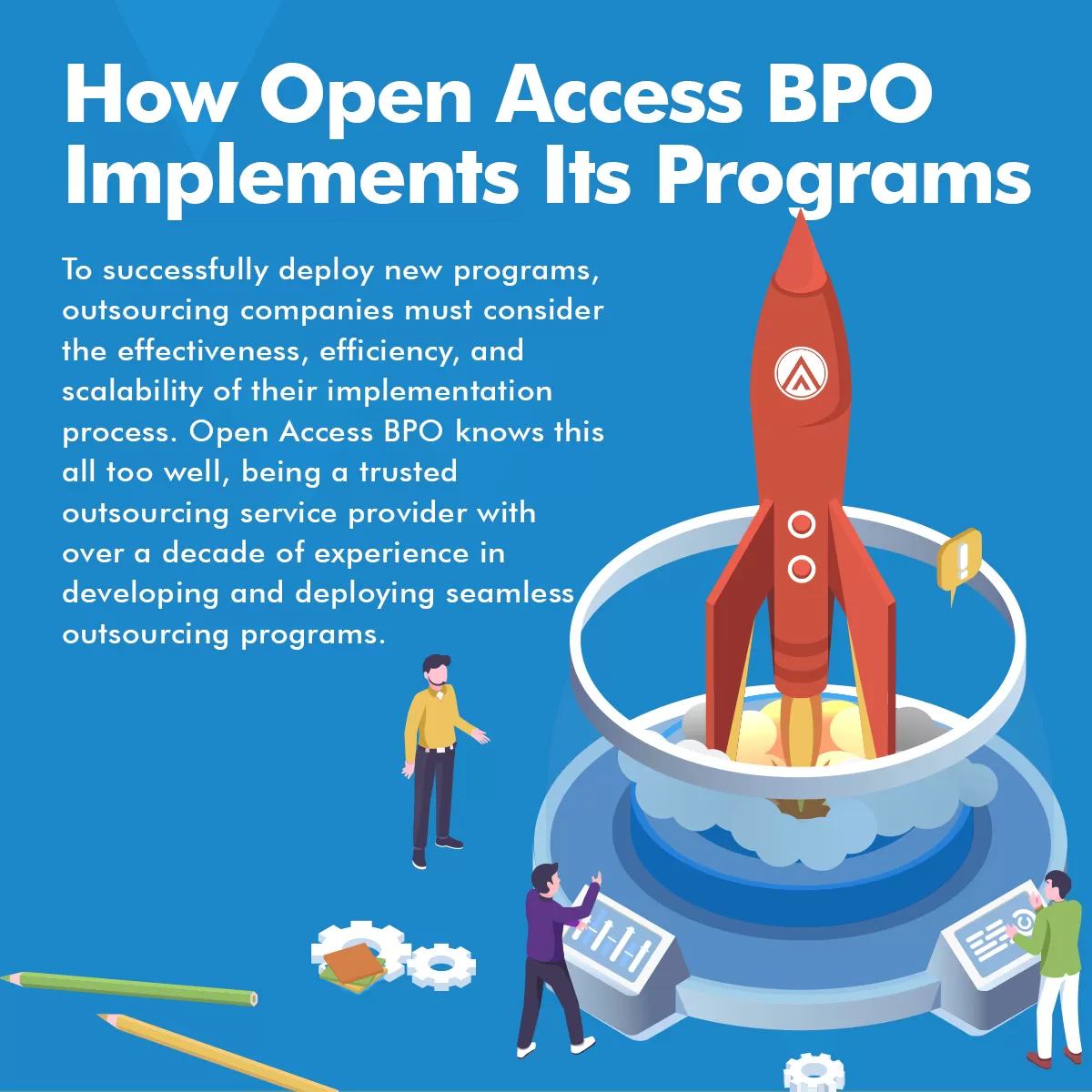Technical support isn’t always about the phone calls. Some non-voice tools also do their part behind the scenes.
With the increasing complexity of technology and customer expectations, technical support call centers are continually adapting to meet these demands. One significant transformation has been the integration of non-voice tools into their operations.
These tools have become essential in enhancing troubleshooting and issue resolution, improving customer experience, streamlining operations, and realizing cost savings.
Non-Voice Tools that Help with Technical Support
Non-voice tools have revolutionized technical support call centers, providing innovative ways to assist customers and streamline operations. Here are some examples of non-voice tools that can greatly benefit technical support teams:
-
Remote Access Tools
Remote access tools allow support agents to connect to customers’ devices remotely, enabling them to diagnose and resolve technical issues. More specifically, these tools provide agents with direct access to customers’ screens. Because of this, agents can see the problem firsthand and provide step-by-step guidance.
-
Screen Sharing and Video Conferencing Tools
Meanwhile, screen sharing and video conferencing tools facilitate real-time visual communication between support agents and customers. These tools allow agents to visually guide customers through troubleshooting steps, making it easier to understand complex instructions.
Additionally, they enable agents to demonstrate specific actions or settings on the customer’s screen, leading to more effective issue resolution.
-
Chatbots and Virtual Assistants
Chatbots and virtual assistants powered by artificial intelligence (AI) have become increasingly common in technical support call centers.
These tools provide instant and automated responses to frequently asked questions, offering customers immediate support and reducing their wait times. Chatbots can be integrated into websites, messaging platforms, and mobile apps, giving 24/7 assistance to customers.
-
Ticketing and Customer Relationship Management (CRM) Systems
Ticketing and CRM systems also help streamline operations by providing a centralized platform for managing and tracking customer issues. These tools allow support agents to create, assign, and track tickets, ensuring that customer inquiries are properly documented and addressed. Additionally, they store customer information, previous interactions, and case history.
-
Knowledge Bases and Self-Service Portals
Knowledge bases and self-service portals, meanwhile, empower customers to find answers to common technical questions and perform self-help troubleshooting. These tools provide a repository of articles, guides, and FAQs that customers can access at their convenience.
Basically, knowledge bases and self-service portals reduce the need for agent intervention and improve customer satisfaction.
-
Workflow Automation Tools
Workflow automation tools automate repetitive tasks and streamline processes, allowing technical support call center agents to focus on more complex and value-added activities.
These tools can automate ticket routing, escalation, and assignment, ensuring that customer issues are directed to the appropriate teams or agents. All in all, workflow automation tools enhance efficiency and productivity.
Now that that’s out of the way, let’s take a look at ways technical support call center operations can take advantage of non-voice tools.
1. Enhanced Troubleshooting and Issue Resolution
These days, technical issues can arise at any moment, and customers expect prompt and accurate solutions. Non-voice tools have revolutionized troubleshooting and issue resolution by providing technical support call center agents with powerful resources.
Remote access tools, for example, allow agents to remotely connect to customers’ devices and diagnose and solve problems directly. This eliminates the need for customers to explain complex issues verbally and enables agents to see the problem firsthand.
With screen sharing and video conferencing tools, meanwhile, technical support call center agents can visually guide customers through troubleshooting steps. Additionally, interactive chatbots provide real-time assistance and self-service options, empowering customers to find quick resolutions on their own.
2. Improved Customer Experience
Delivering an exceptional customer experience is crucial for technical support call centers, as it directly impacts customer satisfaction and loyalty. Non-voice tools contribute significantly to achieving this goal.
Email and messaging platforms, for instance, enable personalized and proactive support. They allow customers to communicate at their convenience while receiving customized assistance. These channels provide customers with a sense of flexibility and control over their support interactions.
Virtual assistants, meanwhile, provide immediate responses to frequently asked questions, reducing customer wait times and providing instant support.
Furthermore, self-help resources such as knowledge bases and FAQs empower customers to find answers independently. As a result, they no longer rely too much on support agents due to their sense of empowerment.
3. Streamlined Operations and Increased Efficiency
Efficiency is crucial in technical support call center operations to handle high call volumes and ensure timely resolutions. Of course, non-voice tools play a role in streamlining processes and enhancing operational efficiency.
For example, ticketing and customer relationship management (CRM) systems provide a centralized platform for managing and tracking customer issues. These tools allow agents to access customer information, view the history of interactions, and track the progress of each case. What this means is that such tools enable a systematic approach to problem-solving.
Meanwhile, automated workflows and task management tools enable efficient assignment and tracking of tasks, reducing manual effort and enhancing productivity. Also, real-time analytics and reporting tools offer valuable insights into technical support call center performance. This allows managers to identify areas for improvement and make data-driven decisions.
Additionally, quality assurance tools help monitor and enhance agent performance to secure consistent service delivery and customer satisfaction.
4. Cost Savings and Scalability
Cost optimization is a key consideration for technical support call centers while maintaining quality service. Fortunately, non-voice tools also contribute to cost savings and scalability. In fact, by reducing the dependency on phone-based support, call centers can significantly reduce telephony costs.
Non-voice tools also enable agents to handle multiple customer queries simultaneously, maximizing resources and reducing the need for additional staffing. As call volumes fluctuate, call centers can easily scale their operations through non-voice channels without incurring significant costs.
Integration of automation and artificial intelligence further enhances cost-effectiveness, as repetitive tasks can be automated. This frees up agents’ time to focus on more complex and value-added activities.
5. Security and Data Protection
Security and data protection are critical considerations in technical support call center operations, especially when handling sensitive customer information. Non-voice tools offer various features to ensure compliance with data protection regulations and protect customer data.
Secure messaging and file sharing platforms guarantee encrypted communication channels, preventing unauthorized access. Meanwhile, access controls and authentication protocols limit access to sensitive data, minimizing the risk of data breaches.
Additionally, technical support call center agents can be trained on best practices for data security when using non-voice tools. This practice makes sure that customer information is handled responsibly and in line with industry standards.
The Importance of Human Judgment in Using Non-Voice Tools for Technical Support
Non-voice tools have revolutionized technical support call center services. However, it is also essential to recognize the importance of human judgment in conjunction with these tools.
Human judgment brings a unique perspective and decision-making ability that cannot be fully replaced by technology. Here are several reasons why human judgment remains crucial in technical support services:
-
Complex and Unique Situations
Technical support often involves complex and unique situations that require critical thinking and problem-solving skills. While non-voice tools can provide automated responses and suggestions, they may not always comprehend the uniqueness of each customer’s situation.
On the other hand, human support agents possess the ability to analyze and interpret information and consider various factors. Because of this, they can offer solutions that cater to the specific needs of the customer.
-
Empathy and Emotional Connection
Technical issues can be frustrating and stressful for customers. Luckily, technical support call center agents bring empathy and emotional connection to the table. These people understand the customer’s emotions and provide a comforting and reassuring presence.
They can listen attentively, empathize with the customer’s frustrations, and offer personalized support aside from technical troubleshooting. This human touch helps build trust and rapport with customers, leading to a positive customer experience.
-
Adaptability and Flexibility
In technical support, situations can rapidly change, and new challenges may arise unexpectedly. Human support agents possess the adaptability and flexibility to adjust their approach and strategies based on the unique circumstances.
They can think on their feet, assess the situation, and modify their responses accordingly. This ability to adapt allows for dynamic problem-solving, reassuring that customers receive the most appropriate assistance and resolution.
-
Contextual Understanding
Understanding the broader context is crucial in technical support. Unfortunately, non-voice tools may lack the ability to fully comprehend the customer’s environment, history, and underlying issues.
Human support agents, however, can gather relevant contextual information through active listening and probing questions. This contextual understanding helps them provide more accurate and effective solutions since they take into account the customer’s specific circumstances.
-
Judgment in Escalation and Priority Setting
Technical support often involves prioritizing and escalating issues based on severity, urgency, and impact on the customer.
While non-voice tools may follow predefined rules and workflows, human support agents can determine the appropriate level of escalation and priority. They can assess the overall impact, consider potential consequences, and make informed decisions on resource allocation and issue resolution.
-
Continuous Learning and Improvement
Human support agents possess the ability to continuously learn and improve their skills through experience, feedback, and training.
They can actively seek knowledge, stay updated on technological advancements, and refine their problem-solving techniques. Simply put, this ongoing learning process enables them to provide increasingly effective and efficient support to customers.
-
Building Customer Relationships
Technical support is not just about resolving immediate technical issues but also about building long-term customer relationships. Human support agents can establish a connection with customers, provide personalized assistance, and address underlying concerns.
With positive relationships, they contribute to customer loyalty, satisfaction, and the overall reputation of the business.
Outsourcing Technical Support + Non-Voice Tools = Business Success
Outsourcing technical support can be an excellent decision for businesses, especially when combined with the utilization of non-voice tools. Here are several reasons why outsourcing to a technical support call center makes sense:
-
Cost Savings
Outsourcing technical support can result in significant cost savings for businesses. With the help of a specialized outsourcing provider, businesses can avoid the expenses associated with building an in-house support team. Such expenses include recruitment, training, infrastructure, and ongoing management costs.
In other words, outsourcing allows businesses to access a skilled and experienced technical support workforce at a fraction of the cost.
-
Scalability and Flexibility
Outsourcing provides businesses with the flexibility to scale their technical support operations according to their needs. During peak seasons or periods of increased customer demand, outsourcing partners can quickly allocate additional resources to ensure timely support.
Conversely, during slower periods, businesses can scale down their support operations. This helps avoid the costs of maintaining a full in-house team during low-demand periods.
-
Access to Specialized Expertise
Outsourcing technical support allows businesses to tap into the expertise of specialized professionals who possess in-depth knowledge and experience in resolving technical issues.
These professionals are well-versed in the latest technologies, troubleshooting techniques, and industry best practices. With their specialized skill set, they can efficiently handle a wide range of technical problems, ensuring prompt solutions for customers.
-
Enhanced Customer Experience
Customer experience is a crucial aspect of any business, and technical support plays a significant role in shaping that experience. Outsourcing technical support to a reputable provider with non-voice tools guarantees a superior customer experience from high-quality support.
Non-voice tools, such as live chat, remote assistance, and self-service portals, can provide quick and efficient support. This convenience results in improved customer satisfaction, loyalty, and brand reputation.
-
24/7 Support Coverage
Technical issues can occur at any time, and customers expect prompt support regardless of the hour. Fortunately, outsourcing technical support to a provider with global operations ensures round-the-clock support coverage.
With teams located in different time zones, businesses can offer 24/7 support to their customers. This helps in boosting customer satisfaction and minimizing downtime.
-
Focus on Core Competencies
Outsourcing technical support allows businesses to focus on their core competencies and initiatives.
When technical support operations are entrusted to an outsourcing partner, businesses can allocate more time and resources to their core business activities. More specifically, they can now prioritize product development, marketing, and innovation without thinking about customer support too much.
-
Leveraging Non-Voice Tools
When outsourcing technical support, businesses can take advantage of non-voice tools to enhance the support process. These tools include ticketing systems, knowledge bases, remote desktop tools, and customer self-service portals. They help streamline support operations, improve efficiency, and empower customers to find solutions on their own.
The expertise of outsourced technical support professionals, combined with the capabilities of non-voice tools, can put businesses one step ahead. This is because businesses can deliver faster, more accurate, and self-service-oriented support experiences
Summary
Non-voice tools have become indispensable in the success of technical support call center operations. They enhance troubleshooting and issue resolution, improve the overall customer experience, streamline operations, and deliver cost savings and scalability. These tools also contribute to security and data protection, ensuring compliance and maintaining customer trust.
Basically, by embracing non-voice tools and incorporating them into their operations, call centers can optimize their efficiency. Consequently, these call centers elevate customer satisfaction and gain a competitive edge in the industry.
Outsourcing technical support needs is beneficial for businesses looking to streamline their operations while simultaneously improving the customer experience. Open Access BPO, a call center in the Philippines, provides great benefits in this regard as the technologies we use are utilized by a diverse workforce, enabling brands to build a customer connection that’s stronger than ever.
Partner with Open Access BPO today to gain access to our top-notch customer service and tech support solutions.
The availability of various customer service tools, such as social media, text messaging, and live chat, lessened call volumes of many technical support call center firms.
For some call centers, these non-voice tools can be detrimental to their voice operations, but the truth is that they benefit call centers in many ways.
Customers who have sent queries via non-voice channels may have been increasingly satisfied, but those who use phones as the contact method for requesting customer service remain to have the highest satisfaction ratings. This is what was reflected in CFI Group’s Contact Center Satisfaction Index (CCSI) 2013.
The report further stated that the high ratings are due to the contact centers’ multi-channeling efforts, implying that non-voice tools drive customer satisfaction and improve customer experience.
Non-voice tools as drivers of customer satisfaction
CFI named policies & procedures, contact process, and interactive voice response (IVR) as the three areas that businesses need to focus on in order to increase satisfaction among customers. As integration of non-voice tools into voice-based service simplifies the procedures and contact process, customers who were served by multi-channeled technical support call center firms are reportedly the most satisfied.
But how are procedures and processes simplified if they go through multiple channels instead of one? The answer is that multi-channeled tech support unifies customer information regardless of the platform the customers used to input their personal data.
When a customer sends a written request (via email, chat, or text message), the information becomes available even to phone representatives. This enables them to understand the request better and consult other departments about the problem before giving the customer a callback. As a result, instances of call transfers and waiting periods are lessened.
Non-voice tools that improve customer experience
The CCSI 2013 report asked customers about their most preferred contact method, and 46% chose non-voice communication channels, particularly chat, email, and social media. Instant messaging emerged as the most preferred among the non-voice tools, with 63% of the respondents saying that live chat is not an annoying feature, but rather a useful website function.
Forecasting that customers will depend more on non-voice tools in the coming years, CFI suggested training technical support call center agents in email communication and online chat, as well as monitoring satisfaction in social media.
Customers today are indeed savvier, thanks to technological innovations that offer them a wider range of channels to get product-related support. The platforms and tools may have evolved, but the need for customer support still remains. Therefore, businesses must keep up by providing the customer service tools that their customers prefer.



